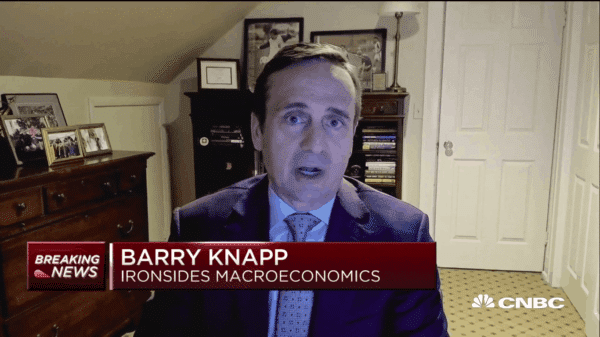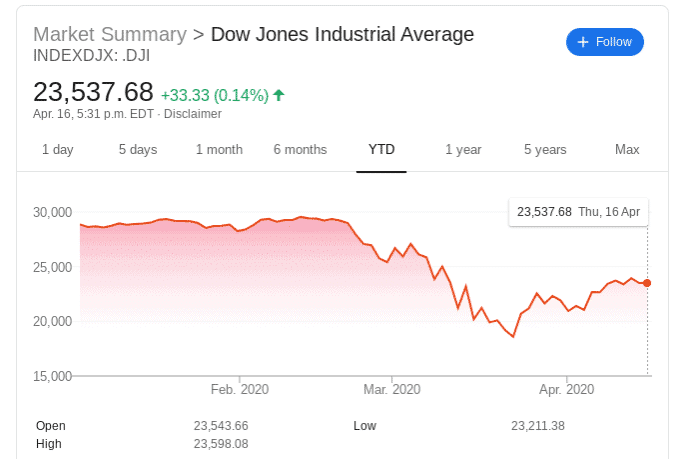This will be the shortest recession ever, economist says

 Recession? What recession?
Recession? What recession?
The worst is likely behind us, according to Barry Knapp of Ironsides Macroeconomics, who says the economy will be growing again by the third quarter.
As talk of flattening the curve turns to questions about when the United States and Canada will be once again open for business, a tally of the damage being rendered in both countries by COVID-19 has begun. And although many predict upwards of a month more of social distancing and shops closed, the ultimate fallout may be slighter than imagined.
“We're likely to have the shortest recession in terms of duration on record,” said Knapp, managing partner at Ironsides to CNBC on Wednesday. “And so, by the third quarter the economy is growing again. How soon we make back all of that lost growth, that output gap and the results the level of unemployment is an open question, but we will be growing again by the third quarter.”
“So you're really looking at a one quarter sharp hit to growth and then re-accelerating to the upside,” Knapp said. “The question about whether the market bottom is in, I don't think there should be much of a debate about that. The magnitude of the decline the compression of the equity multiple all of those were greater than, than average. So, you know, we should be on the other side of the worst of this for sure.”

After a great stretch to early April, the markets have been relatively flat so far this week, with the S&P 500 Index up slightly since Monday and the S&P/TSX Composite down almost two per cent. The tech-heavy NASDAQ index is up almost five per cent over the same span, with names like Amazon and Netflix posting huge gains.
The markets have recovered considerably since their late February/early March swoon, with the S&P 500 now down about 17 per cent from its February highs, but the economic costs are still unknown, especially when it comes to employment.
In the United States, the Labor Department says five million more Americans filed for unemployment benefits last week, bringing the total since the pandemic began at 22 million.
In Canada, over three million people have applied for employment insurance and the Canada emergency response benefit (CERB) since March 16.
Knapp says that part of the reason for his optimism comes from seeing the COVID-19 virus as having already reached its peak in the US and, importantly, a wider-than-estimated number of Americans having been infected, thus establishing a level of herd immunity to protect against major outbreaks going forward.
“I started thinking about the timing of when the disease was here, the magnitude of the number of people that were infected … and it's likely that we're going to see that this is far more widespread which means the mortality rate is lower,” Knapp said. “That should play fairly heavily into how we think about the trajectory of the recovery as well.”
“I just was so struck by how little we knew about how widespread this infection was globally because there just hasn't been any testing,” he said.

